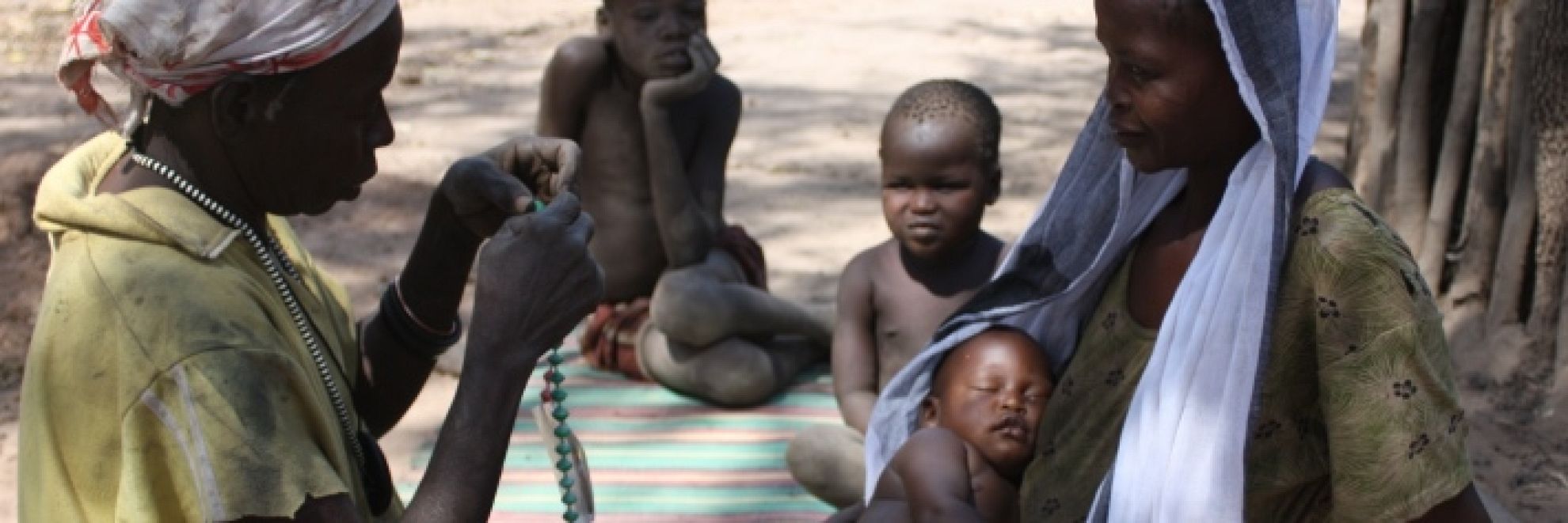
ICCM: Sharing what works - Symposium
31 May 2013Every year, an estimated 6.9 million children die before they reach the age of five; many of them from preventable and treatable diseases like pneumonia, diarrhoea and malaria. Working with governments and communities to reduce this appalling death toll underpins most of Malaria Consortium's work in Africa.
We are working with national ministries of health in four countries in sub-Saharan Africa to train selected community members in the skills required to diagnose, treat and, in serious cases, refer young children suffering from these three diseases. This brings essential health care for the most vulnerable right to their doorstep – bringing skills to the community, reducing the burden on overstretched health facilities and, most importantly of all, saving lives by saving time.
The approach, known as integrated community case management or ICCM, centres around the idea that the most common childhood killers can be readily diagnosed and treated by people within the community, including those with limited education and medical training.
Malaria Consortium has been implementing ICCM projects in Mozambique, South Sudan, Uganda and Zambia since 2009. To date, over 14,000 community health workers have been trained, providing close to three million treatments for over 2.4 million cases.
Recently, Malaria Consortium shared learning from its ICCM activities at a
day-long event in London. Presentations and discussions focused on Malaria Consortium's longest running ICCM programme and its effectiveness and impact on the health of children under five.
Speaking at the event, Malaria Consortium's Africa technical director Dr James Tibenderana said: "Community health workers are addressing a need and would like to be part of the solution… This what the public health community has been looking for – a process from which the bottom can get to the top and demand both for services and that their rights are met. ICCM provides this platform."
Representing the Ugandan ministry of health, Dr Henry Katamba discussed Uganda's experience of three years of ICCM implementation in 17 districts of mid-western and Central Uganda, drawing attention to the importance of sustaining the intervention: "There is a real need for investment in training and close monitoring of village health teams [VHTs]. This is the level of investment needed for sustainability, but it is a challenge for Uganda in terms of capacity building. Sustainability is dependent upon investment in order to capacity build. Without this, the gains we have achieved are at risk of being lost."
Also speaking at the event, which was broadcast live online, were ICCM experts from Unicef and the London School of Hygiene and Tropical Medicine.
Welcome: Dr Sylvia Meek, Malaria Consortium
Improving access to, quality of and demand for ICCM services: Helen Counihan, Malaria Consortium. Download the presentation here.
Questions and Answers
ICCM in practice – lessons learnt from a participatory evaluation across three African countries (South Sudan, Uganda, Zambia): Clare Strachan, Malaria Consortium. Download the presentation here.
Questions and Answers
Improving CHW quality of care: Dr James Ssekitooleko, Malaria Consortium. Download the presentation here.
Questions and Answers
Community Case Management of Pneumonia in Zambia: Factors Which Determine Rational Use of Antibiotics: Dr Kirstie Graham, Malaria Consortium. Download the presentation here.
Questions and Answers
Three years of ICCM implementation in 17 districts of Uganda- what have we learnt?: Dr Henry Katamba, Uganda Ministry of Health. Download the presentation here.
Questions and Answers
ICCM impact in four African countries: Geoffrey Namara, Malaria Consortium. Download the presentation here.
Evidence Review of ICCM: Dr Theresa Diaz, UNICEF
Questions and Answers
Innovations and research priorities for improved quality and reach of ICCM: Dr Karin Källander, Malaria Consortium. Download the presentation here.
Sustaining ICCM: focus on costing: Frida Kasteng, London School of Hygiene and Tropical Medicine. Download the presentation here.
Questions and Answers
Panel discussion: Is ICCM one of the vital approaches to achieve high and sustainable coverage for major childhood illnesses?
The future of ICCM: Dr James Tibenderana, Malaria Consortium
Closing remarks: Dr Sylvia Meek, Malaria Consortium
Latest news
- Malaria Consortium honoured by Ugandan government for contribution to combat malaria23rd April 2024
- International summit calls for AMR accountability in public health interventions21st March 2024
- Global SMC community celebrates new milestone at SMC Alliance Annual Meeting in Nigeria6th March 2024
- Scaling up key interventions could halve pneumonia-related childhood mortality13th February 2024
- Malaria Consortium and eGov Foundation join Mozambique’s national malaria programme to digitalise seasonal malaria chemoprevention campaigns8th February 2024
- World’s first malaria vaccine rollout launched in Cameroon22nd January 2024